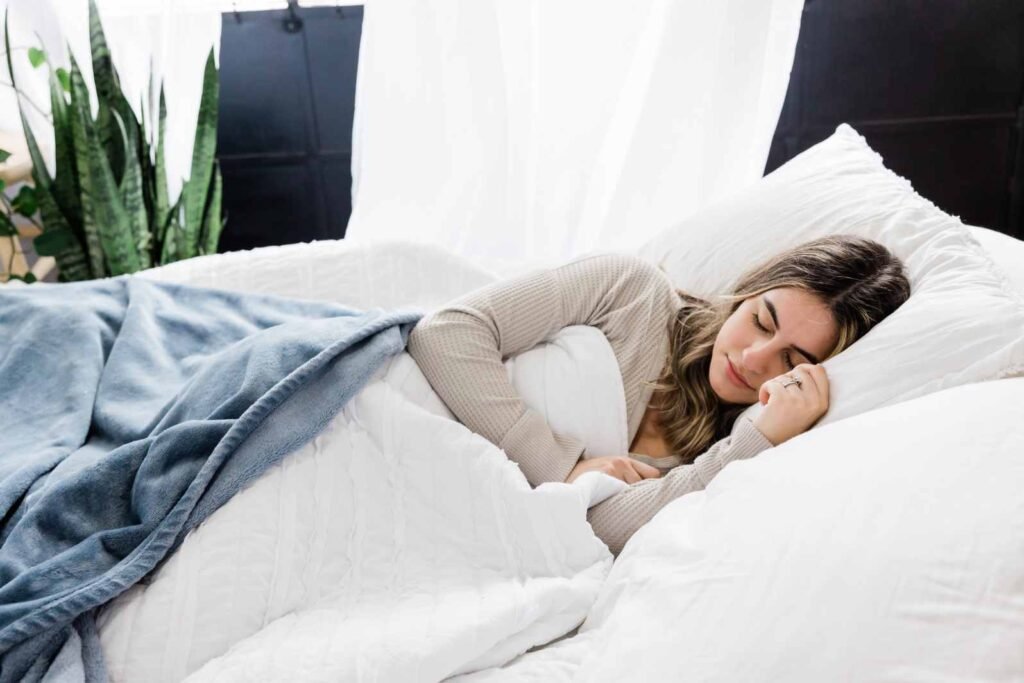High-quality sleep is one of the most effective tools for a healthy life. Still, many people find it hard to achieve quality sleep. Lousy sleep can disrupt mood, energy levels and memory. And there is a well-established link between poor sleep and immune suppression. The good news is that basic daily habits can yield improvements in sleep. These patterns are referred to as sleep hygiene. By establishing the proper routines, you can teach your body and mind to relax for deep rest every night.
What is Sleep Hygiene?
Sleep hygiene is the term for the practices that make up a sleep-friendly lifestyle and environment. It’s not about medicine; it’s about lifestyle. Just as brushing your teeth benefits oral health, good sleep hygiene promotes sound sleep.
Why Sleep Hygiene Matters
You can’t repair your body when you don’t get proper rest. Negative effects of sleep deprivation in the long term The problem may contribute to being overweight, stress, anxiety, and low immunity. On the other hand, quality sleep will keep your mind sharp, increase productivity and overall happiness.
Best Routines for Better Sleep This Year
1. Maintain a Consistent Sleep Schedule
Have a regular bedtime and wake-up time. Stay with the schedule even weekends. “It trains your body clock, and all of a sudden you’re asleep much more rapidly.
2. Create a Relaxing Night Routine
An hour before bed, don’t work and don’t engage with anything that is stressful. Try reading, meditation, gentle stretching or listening to soothing music. This tells your body that it’s time to go to sleep.
3. Limit Screen Time Before Bed
Mobile phones, laptops and TVs all produce blue light that disrupts sleep hormones. Power down 30–60 minutes before lights out.
4. Make Your Bedroom Sleep-Friendly
Dark, quiet and cool your room. If outside light is an issue, invest in blackout curtains. A good mattress and pillow also contribute to restful sleep.
5. Watch What You Eat and Drink
Cut back on large meals, caffeine and alcohol before bed. Also, rather than heavy snacks, consider light ones such as warm milk and bananas or nuts if you feel hungry at night.
6. Stay Active During the Day
Regular exercise improves sleep quality. Just don’t work up a sweat before bed — vigorous exercise will make you more alert.
7. Manage Stress
Stress and anxiety are major sleep enemies. Journaling, deep breathing or yoga can help clear your mind and get you ready for some sleep.
8. Limit Daytime Naps
Short naps of 20–30 minutes are okay, but long afternoon naps can interfere with your night sleep.
Common Mistakes to Avoid
- Drinking tea or coffee at night
- Binge-watching movies or going on social media in bed
- Sleeping with bright light or loud sounds.
- Working or studying on the bed instead of just sleeping and relaxing
Final Thoughts
Sleep isn’t a luxury, after all.Dyson Not that you would know. Implementing these basic sleep hygiene habits you will have a healthier life, a great mood, and more productivity. At the same time, small changes in day-to-day routine can make a big difference in the quality of sleep. This year, Let this be the year of better rest.
FAQs:
Q1. How much sleep do adults require?
Good health requires seven to nine hours of sleep a night for most adults.
Q2. Can I make up my sleep on weekends?
Getting extra sleep on weekends may offer some relief, but it can’t completely erase the accumulated sleep debt. A consistent stable sleep pattern is more effective.
Q3. Is it OK to use your phone before bed when using night mode?
Night mode dims your screen and reduces blue light, but it will still keep your brain engaged. Here’s why you should also keep phones out of reach before bed.
Q4. What do I do if I can’t get to sleep?
If you’re not asleep in 20 minutes, get up and do something relaxing (try reading) before you try again. Do not keep tossing in bed.
Q5. Do warm milk helps on sleep?
Yes, warm milk does contain tryptophan, an amino acid shown to have a sedative effect on the brain.

